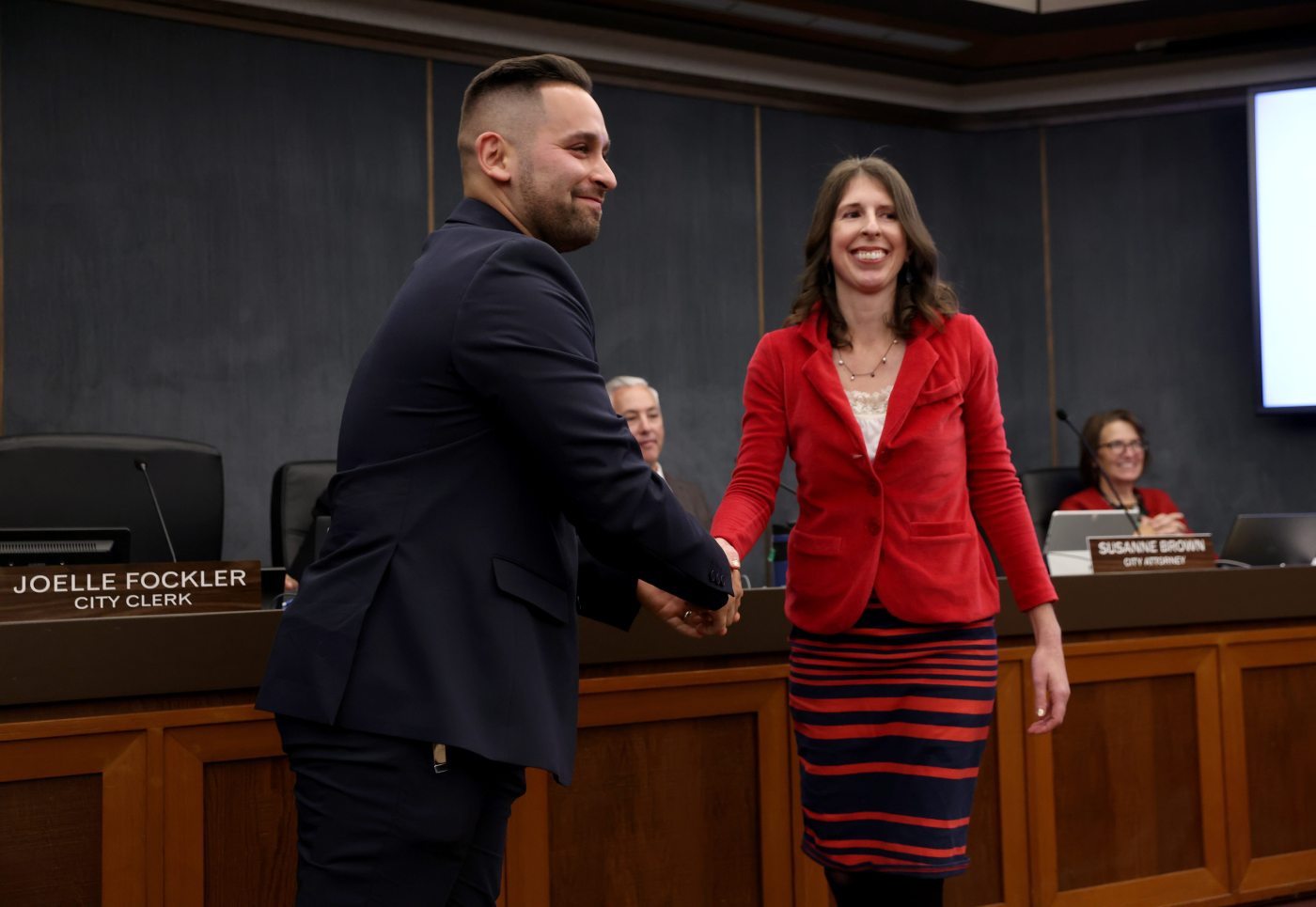Less than a year after Concord adopted a hard-won residential tenant protection program that outpaced similar state and local housing laws, some of its most strict regulations have reignited debate.
Pablo Benavente, the city’s newest councilmember, is now caught in the crosshairs — facing accusations that he has prioritized landlords and property owners’ financial demands over efforts to keep lower-income tenants housed and safe.
Concord’s complex set of regulations for renters took effect in April, increasing “just cause” eviction protections to most of the city’s tenants, establishing rent stabilization for roughly half its rental stock and generally dictating what landlords can do with their units and how renters can respond. For example, property owners cannot increase rents by more than 3% or 60% of current inflation index rates, whichever is lower.
Local tenant organizations started advocating for local rent controls in 2016, citing stats that show renters occupy approximately 40% of all housing units in the city, and nearly half of those residents shell out more than a third of their income on housing costs.
But exactly seven weeks after being sworn in to represent District 4, Benavente quietly requested last month that the city expedite its annual public review of the new rules.
Specifically, the 33-year-old freshman lawmaker, who narrowly ousted 12-year incumbent Edi Birsan in the November election, requested that the council re-deliberate its rent cap formula, as well as the rental requirements for single family homes and condos — two of the most popular complaints voters shared on the campaign trail.
“I truly believe that is leadership — trying to find that balance and hear everybody,” Benavente said in an interview, explaining that putting an item on a future agenda was the easiest way to ensure property owners’ could legally speak out during the ordinance’s first annual review, which was orig. “I owe it to the people who voted for me to bring this up for discussion.
This debate is slated to resume during a public hearing Feb. 25, following the council’s decision to delay a vote while Councilmember Dominic Aliano, who represents a large proportion of renters who live in District 3, was absent. If any changes are proposed, they wouldn’t become law until at least May.
“Everyone is looking at me because I guess I am a swing vote, so that’s why I’m trying to steer the ship on this topic,” he said. “I still haven’t made up my mind.”
In the meantime, one common complaint that resonated with nearly every tenant, landlord, homeowner and elected official who spoke during this week’s four-hour Concord City Council meeting: everyone is struggling.
But that’s where the bulk of consensus ended.
On Tuesday, dozens of residents argued that it’s still too early to make an accurate assessment of the success of Concord’s tenant protections ordinance, let alone attempt to move the program’s goal posts that elected officials narrowly set in a 4-1 vote last Spring.
Others lambasted Benavente for generating undue confusion about Concord’s tenant protections while federal immigration agents have started patrolling local streets and conducting operations across the Bay Area.
Moreover, several community members said Benavente’s focus on property owners’ concerns was a disappointing about-face from his role as the board chair of Monument Impact, a nonprofit focused on supporting immigrant, refugee, and low-income communities in Concord.
Related Articles
High-profile East Bay apartment complex is bought for $150 million-plus
California housing officials recommend state protect renters from extreme heat
New Alameda County renter protections pass after six years
VC-backed startup accused of gouging Los Angeles fire victims on rent
Rent gouging in Los Angeles County will soon carry a maximum $50,000 penalty
“It felt like a betrayal to see him prioritize this first,” Karen Hernandez, a Concord resident and community organizer with Monument Impact, said in an interview. She said hours-long public meetings about policy waste time and resources that might otherwise go toward issues like court battles over unfair evictions.
Rami Kahlon, an immigrant and 51-year resident of Concord, was one of many “mom and pop” landlords who outright rejected claims that opposition to the city’s current tenant protections is based on anything besides a mathematical equation.
He said that it’s become more difficult for rental property owners — particularly retirees like him who rely on rental income — to cover increasingly high bills for a insurance, sewer, water, garbage, utilities and building maintenance.
“You want me to subsidize increased costs, but (the rent cap) does not cover those expenses,” Kahlon said. He argued that Concord’s limit of 3% or 60% of CPI, whichever is lower, is prohibitively strict compared to rules approved in Richmond and Berkeley, which more closely align with the 2019 California law that limited rent hikes to 5% plus CPI or 10% annually. “Basically, my retirement income will decrease each year, and I’ll keep deferring capital improvements like paint, roofs and concrete. There won’t be enough money left over. You have a chance to fix this policy mistake.”
Yet some residents said this rushed proposal to review tenant protections in Concord may have been a mistake that’s harder to correct; Benavente’s stance on the ordinance counters opinions from some of the organizations that endorsed his candidacy, including the California Democratic Party and Diablo Valley Dems.
Vice Mayor Laura Nakamura, who chairs the local democratic club, said she was worried the move could drive an even deeper wedge between renters and landlords.
“I found it a little tone deaf for this to be happening now,” Nakamura said in an interview Thursday. While she conceded that “this may have been a case of a new council member trying to do something without necessarily knowing the lay of the land … I do hope that the intentions of the ordinance remain intact.”












